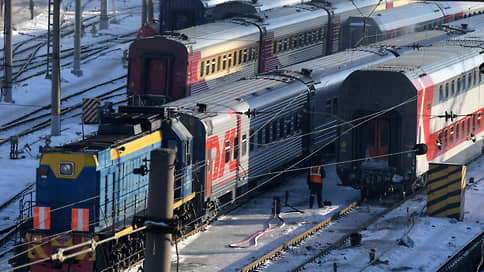Sovereign locomotive pulls up – Kommersant
[ad_1]

Russian Railways expects to receive fully domestic locomotives in 2024. The problem with the replacement of equipment that has ceased to arrive from abroad has been largely resolved, but difficulties remain with some items, primarily with bearings. Rolling stock manufacturers also note the lack of a part of the component base, which they rely on state support for localization. According to experts, a domestic locomotive in 2024 is quite real, but there are some obstacles to setting up production in Russia, including a lack of personnel and a test base in the face of competition with the defense industry, as well as the absence of a protective duty on a number of subcomponents imported from China.
Russian Railways maintains plans to receive fully localized locomotives next year. “In 2024, we are waiting for a whole line of completely domestic locomotives,” says Oleg Valinsky, Deputy General Director, Head of the Traction Directorate of Russian Railways. “Sinara and Transmashholding are working to ensure that such locomotives appear.”
According to him, in 2022, the problem with the replacement of equipment for locomotives, which ceased to enter the Russian market after the outbreak of hostilities in Ukraine, was basically solved, including the localization of the main parts, partly with their purchase from friendly countries, which required their certification. and tests. “But the positions that worry us have remained,” he says. “There are certain positions that go through parallel imports, but even what goes through parallel imports, we still localize. These are mainly bearings, for high-speed machines – gearboxes, since there is still no machine equipment with the necessary accuracy of metal processing to work with high-speed machines. There are problems with converters, with IGBT transistors – they were not traditionally manufactured in Russia, they have only just begun to be made, but there is a time limit for putting them into production.
Oleg Belozerov, head of Russian Railways, said that the company reduced its share of import purchases from 7% to 3%.
Transmashholding (TMH) reported that this year the company plans to obtain a certificate for the sovereign locomotive 3TE28. “The main freight diesel locomotive 3TE28 was created to ensure uninterrupted cargo transportation on non-electrified sections of the Eastern test site,” the TMH explained. “The first prototype has been successfully undergoing a cycle of acceptance and certification tests at VNIKTI since February. The second prototype of the locomotive will also be sent for acceptance and certification tests at VNIKTI at the end of spring.” TMH reported that there are no problems with the supply of spare parts, “however, at present in Russia there are problems with the localization of IGBT transistors and microelectronic elements of the control system.” TMH emphasized that they are counting on providing state support in terms of localizing these components. Sinar did not comment.
Plans to launch a series of locomotives in 2024 with the maximization of the Russian component base are feasible, says Sergey Belov, editor-in-chief of Rollingstock Agency. The development of the missing alternative component base accelerated almost immediately after the start of the conflict in Ukraine. “On average, design documentation for components is developed within three to six months, and then a number of nuances begin,” he says. “The first is the availability of appropriate production equipment, which is now mainly solved through state support. The second is the availability of a test base and free capacities for pickers, provided that a multiple-fold increase in the order from the defense industry is now a priority. The third is the passage of certification procedures. The fourth and, probably, the most important is technical specialists and workers, for whom, against the backdrop of again a sharp request from the defense industry, very strong competition unfolded. He also notes that an important factor is the subcomponents purchased by first-level pickers, “for them, in some cases, there is no protective duty on imports from China and other countries, which reduces the investment attractiveness of creating such industries in Russia.”
[ad_2]
Source link





